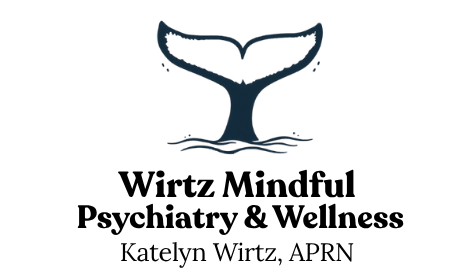Understanding OCD
-
OCD is a common mental health condition but often misunderstood. Many people mistakenly believe that OCD is simply harmless personality trait or involves a preference for cleanliness and organization. However, OCD is a serious and often disabling mental health condition that can affect individuals of any age or background.
OCD is characterized by unwanted, intrusive thoughts (obsessions) and repetitive behaviors or mental acts (compulsions) performed to reduce distress or prevent feared outcomes. OCD is “ego-dystonic,” meaning these thoughts and behaviors are in direct conflict with a person’s values, desires, and sense of identity. People with OCD do not want these thoughts and do not want to perform their compulsions.
What Are Obsessions?
Obsessions are unwanted repetitive, intrusive thoughts, urges, or images that cause significant anxiety or distress.Common obsessions include contamination, fears of harm to self or others, sexual or violent thoughts, concerns related to religion or morality, excessive worries about relationships, perfectionism, and “just right” feelings.”
What Are Compulsions?
Compulsions are behaviors or rituals—either physical or mental—that a person feels driven to perform in response to obsessions in an attempt to reduce anxiety or prevent a feared event. While compulsions may provide temporary relief, they ultimately reinforce obsessions, perpetuating the cycle of OCD. Common compulsions include excessive washing and cleaning, checking, repeating and redoing things until the it feels “right” or is done a certain number of times, praying, mental review of events, confessing, reassurance seeking. -
There are effective treatment options to help manage OCD symptoms, significantly reduce distress, and and support long-term recovery. To date, the most effective, evidence based treatment includes medication, Exposure and Response Prevention therapy (ERP), or a combination of both. ERP is considered the gold standard for treating OCD and research shows ERP alone often outperforms medication alone. However, combining ERP with medication is often more effective for individuals with severe OCD or co-occurring mental health conditions.
Medication:
Selective Serotonin Reuptake Inhibitors (SSRIs) are the first-line, evidence-based medications for treating OCD. They are effective for many individuals and are generally well tolerated. When used for OCD, SSRIs often require higher doses and a longer treatment trial than when used for depression or other anxiety disorders. Examples of SSRIs include but are not limited to, Fluoxetine (Prozac), Sertraline (Zoloft), Fluvoxamine (Luvox). SSRIs have been foind to lead to significant improvement in about 40–60% of people with OCD.When SSRIs are insufficient or not fully effective, there are other options. Clomipramine, a tricyclic antidepressant is another proven treatment for OCD. Dopamine receptor antagonist (also known as an antipsychotic) can also be added at low doses to enhance treatment. Despite the name, these medications are used for variety of conditions and their use does not mean someone is “psychotic.” Examples include Aripiprazole (Abilify) or Risperidone (Risperdal). Glutamate modulators may also support OCD symptom reduction. Examples include Memantine (Namenda) or N-Acetylcysteine (NAC).
ERP:
ERP is a specific form of Cognitive Behavioral Therapy (CBT) designed to help individuals with OCD gradually face feared thoughts, images, or situations (exposure) while resisting the urge to engage in compulsive behaviors (response prevention). The response prevention portion is essential. ERP has been shown to lead to significant improvement in up to 80% of people with OCD.Together, we’ll start by identifying your specific fears and compulsions, exploring their impact on your life, and clarifying your values and what motivates you to seek treatment. This is an important step because ERP can be challenging, and keeping your “why” in mind will help stay focused and motivated throughout the process.
We will create a “fear hierarchy,” ranking situations from least to most distressing. In a supportive environment, you will gradually face your fears and triggers without engaging in compulsions—or begin by delaying or reducing them. We will go at a pace that feels comfortable for you and be in line with your values and goals.
Together, we will thoughtfully explore your experiences and review medication and ERP to determine which approach that best supports your needs. If you require more intensive ERP treatment, I can refer you to trusted therapists for additional support.
-
Websites:
Books:
The Self-Compassion Workbook for OCD: Lean Into Your Fear, Manage Difficult Emotions, and Focus on Recovery by Kimberley Quinlan, LMFT
Freedom from Obsessive Compulsive Disorder: A Personalized Recovery Program for Living with Uncertainty by Jonathan Grayson, PhD
